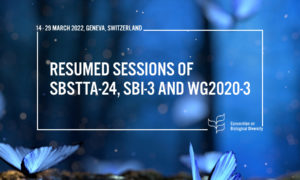Newsletter 21 Mar 2022
Environment: What’s Up in GENeva | 21 – 27 March 2022

The Geneva Environment Network’s weekly newsletter includes the latest information on the global environmental agenda, main events, job vacancies, as well as updates. Stay tuned and follow us also on Twitter, Facebook, LinkedIn, Youtube, or visit our website regularly for additional updates.
In light with the recent developments in the sanitary situation, institutions in Geneva are operating in hybrid format. Our update on COVID-19 and the environment lists relevant information.
Image of the week | Elizabeth Mrema, Executive Secretary of the Convention on Biological Diversity, Opening the Geneva meetings of the Convention, on 14 March 2022 © Pablo Arturo López Guijosa, UNEP/GEN.
Resuming of UN Biodiversity Negotiations
The resumed sessions of the Convention on Biological Diversity (CBD) twenty-fourth meeting of the Subsidiary Body on Scientific, Technical and Technological Advice (SBSTTA-24), the third meeting of the Subsidiary Body on Implementation (SBI-3) and the third meeting of the Open-ended Working Group on the Post-2020 Global Biodiversity Framework (WG2020-3) are continuing this week in Geneva. Due to sanitary measures, participation to the meetings running until 29 March is possible only for registered participants. Interested stakeholders are welcome to watch live the plenary sessions, join the side-events virtually, or physically attend additional parallel activities organized in the margins of the conference.
The first week of negotiations ended late at night on Saturday, a sign of delegates’ commitment to find common ground in their diverging views on many parts of the Post-2020 Global Biodiversity Framework (GBF), and advance all other work under the subsidiary bodies of the Convention. The Earth Negotiations Bulletin provides daily coverage of the meetings, while the CBD Secretariat holds regular press briefings. → Consult our update on the CBD meetings for additional information.
Human Rights and Biodiversity
The UN Special Rapporteur on Human Rights and Environment met last week with the Executive Secretary of the Convention of Biological Diversity. They underscored in their discussion that human rights is a key and necessary dimension of the Post-2020 Global Biodiversity Framework. Numerous stakeholders are indeed encouraging member states to apply a human-rights based approached in the Post-2020 Global Biodiversity Framework. Human Rights are not negotiable and need to be integrated in biodiversity action. The key messages convened:
- A human rights-based approach means, in simple terms, that biodiversity policies, governance and management do not violate human rights
- Indigenous peoples and local communities’ ways of life and territories are part of the solution
- The rights of women and girls to participate is enshrined in the Convention on Biological Diversity
- The rights of younger and future generations are intergenerational and sacred and Transformative education and full engagement of children and youth is essential
- Review, reporting, and monitoring constitute critical elements of this framework
- The need for an additional inter-sessional meeting dedicated to the monitoring framework should be called
The third brief of the CBD Human Rights in Biodiversity Working Group – Implementing a human rights-based approach to biodiversity conservation: What is urgently needed to effectively adopt a human rights-based approach across the implementation, monitoring and reporting of the post-2020 global biodiversity framework – was launched last week and presented at the CBD Side Event | Applying a Human Rights-based Approach in the Post-2020 Global Biodiversity Framework, 0n 19 March.
A few months ago, here in Geneva, a few blocks from here, the UN Human Rights Council passed a resolution that we all know by now, which we celebrated. But unfortunately, such achievement did not permeate into other UN bodies. I’m also Mexico’s chief negotiator for climate change. I was at COP-26 in Glasgow and I was surprised that we did not acknowledge this resolution in the cover decision known as the Glasgow Climate Pact. We had a few successes but it was not enough. […] Even if a country such as Mexico, who has a very strong mandate to mainstream human rights approach in every multilateral forum, demands for human rights approach, it might not be enough. We need critical mass. We need to coordinate among us, we’re all allies. Let’s have that critical mass. Ask your parties, ask other delegates, ask civil society, to demand and keep pushing for human rights.
Camila ZEPEDA LIZAMA, Mexico’s Chief Negotiator for Climate Change and Biodiversity, on 19 March 2022
This week, the event Integrating Human Rights in the Future of Biodiversity Action, will build upon the recent recognition of the right to a clean, healthy and sustainable environment as a human right by Human Rights Council resolution 48/13, and share ideas for a Post-2020 Global Biodiversity Framework that promotes rights-based action to protect biodiversity. → Register on Webex and join us on Tuesday 22 March at 13:15 CET.
Environment at the Human Rights Council
The 49th regular session of the Human Rights Council (HRC49) continues this week in Geneva. Throughout the session, running until 1 April, regular updates on key issues at HRC49, side-events and further resources are available on our dedicated webpage.
UN Environment Assembly Debriefing
Earlier this month, the UN Environment Assembly (UNEA) made history as governments delivered on a number of pressing environmental issues, including plastic pollution, science on chemicals and waste, nature-based solutions, resources management, health, and more. To reflect on these important decisions and the next steps, you are invited to join a High-Level Debriefing on UNEA-5. This debriefing will provide an update on the outcomes of UNEA-5, reflect on the priorities for the next session, which will take place in 2024, as well as the processes in Geneva that can contribute to UNEA-6. → Register to participate online or in person on Thursday 24 March at 10.00 CET.
Climate Change and the Future of Our Planet
This week, the Intergovernmental Panel on Climate Change (IPCC) starts reviewing its next report “Climate Change 2022: Mitigation of Climate Change“, at its 56th Session, running until 1 April 2022. IPCC Working Group III (WGIII) contribution to the Sixth Assessment Report assesses methods for reducing greenhouse gas emissions, and removing greenhouse gases from the atmosphere. → Watch live the opening ceremony at 11:00 CET, on Monday 21 March.
Events in Geneva this week building on the outcomes of IPCC reports include:
- Webster University is organizing an event highlighting the relevance and timeliness of human mobility in the context of environmental degradation and climate change, with a focus on the results of the 2022 IPCC Working Group II report, exploring the results of the Glasgow COP26 as far as human mobility is concerned, and providing an analysis of key processes and events to come in 2022 of relevance to this topic. The virtual event on 24 March at 17:00 CET will provide insights into the objectives of the new Webster University Master’s Program on Migration, Climate Change and Environment (MAMCE).
- The Permanent Missions of the Arab Republic of Egypt and the United Kingdom in Geneva and the International Federation of the Red Cross and Red Crescent Societies (IFRC) are convening a Climate Science Humanitarian Dialogue, on 25 March at 13:00 CET. The event will unpack key findings of the IPCC Working Group II report and will assess the humanitarian implications for government representatives, intergovernmental and non-governmental organizations, research and academic institutions working on humanitarian issues. Concrete recommendations for states and non-state actors to take forward at COP27, the Global Platform for Disaster Risk Reduction, the meetings of the Warsaw International Mechanism and the Santiago Network, and other related global processes will be formulated.
Celebrating International Forest Day
The world celebrates International Forest Day on 21 March, bearing recognition of the vital importance of forests to our lives. Under the theme “Forests and sustainable production and consumption”, this year’s edition invites us to reflect on how many aspects of our lives are linked to forests, from the water we drink to the medicine we take. Forest sustainable management and their use of resources are key to combating climate change and contributing to the prosperity and well-being of current and future generations. The day also brings attention to global deforestation, which continues at an alarming rate, despite all the priceless ecological, economic, social and health benefits that forests entail.
To celebrate the day, FAO and partners are hosting a global high-level live event on 21 March, 12.00 CET in a hybrid format (online and in Dubai). In Geneva, UNECE is hosting a full-day event on forests and circular economy. Find out more resources and activities here.
Celebrating World Water Day & Preparing World Water Conference
World Water Day, held on 22 March every year since 1993, is the opportunity to raise awareness about the importance of freshwater and take action to tackle the global water crisis. The 2022 edition focuses on “Groundwater – making the invisible visible”. Out of sight, under our feet, groundwater is a hidden treasure that enriches our lives, by supporting drinking water supplies, sanitation systems, farming, industry and ecosystems. World Water Day 2022 reminds us of the need to work together to sustainably manage this precious resource. The official global commemoration, involving actors from international Geneva, will be held on 21 and 22 March as part of the 9th World Water Forum in Dakar, Senegal.
For those working on water issues, this week is the final chance to register to the Pan-European Regional Preparatory Meeting to the 2023 UN Water Conference, which will be held in Geneva and online on 12-13 April 2022. The meeting will provide a platform for UNECE member States and stakeholders to review progress and showcase effective ways to implement the goals and objectives of the International Water Action Decade, and water-related goals in the 2030 Agenda for Sustainable Development. Organized in cooperation with UN-Water, it will address issues such as access to water and sanitation, transboundary and intersectoral water cooperation, ecosystem and biodiversity conservation, pollution prevention, floods and droughts, financing water, circular economy etc. Registration is open until Tuesday 22 March 2022.
Celebrating World Meteorological Day
World Meteorological Day, held on 23 March, will be celebrated under the theme “Early Warning and Early Action“. The day spotlights the vital importance of hydrometeorological and climate information for Disaster Risk Reduction, as weather, climate and water extremes are becoming more frequent and intense in many parts of the world as a result of climate change. The official ceremony to be held at the WMO headquarters in Geneva will also be accessible online on Zoom and streamed live on Youtube, on 23 March at 14.00 CET.
An Hour for the Earth and for Us
for one hour, turning off their lights at 20.30 local time to raise awareness of the importance of protecting our collective and only home. Earth Hour is a collective movement for a future that benefits people and planet.
Various municipalities in the Geneva region will take part and turn off their lights in support of Earth Hour on Saturday 26 March. The Jet d’eau, the SIG building in Lignon and the Pont de la Machine will also be off. Find more information about the campaign and participating cities in Switzerland here (in French).
Happening Abroad
This week various international conferences and negotiations happening abroad involve numerous institutions from international Geneva.
- Resumed Fourth Meeting of the Conference of the Parties to the Minamata Convention of Mercury | Bali
- World Water Forum | Dakar
- Sixty-sixth session of the Commission on the Status of Women (CSW66) | Achieving gender equality and the empowerment of all women and girls in the context of climate change, environmental and disaster risk reduction policies and programmes | New York
What (Else) Should I Read Next?
- States’ Human Rights Obligations in the Context of Climate Change: Guidance Provided by the UN Human Rights Treaty Bodies | CIEL | March 2022
Human rights treaty bodies (HRTBs) – established to monitor the implementation of the United Nations human rights treaties – have a critical role to play in further elaborating on the obligations of States to respect, protect, and fulfill human rights in the context of climate change. This synthesis note reviews the outputs adopted by HRTBs in 2020 and 2021 with regard to climate change. - One Health on the global map | Inger Andersen | UNEP | 17 March 2022
At the 28th Tripartite Executive Annual Meeting for coordination of global activities addressing health risks animal-human-ecosystems interfaces, UNEP Executive Director emphasized the growing significance of the soon-to-be Quadripartite Alliance on One Health, as our planet is growing sicker, and people and animals with it. She further highlighted how the upcoming plastics treaty could be a game changer to address the growing health and environmental risks of pollution. - The World Has One Big Chance to Fix Plastics | The Atlantic | 15 March 2021
While the decision at UNEA-5 to set up an international negotiating committee on plastic pollution marks a major step forward, the road to a plastic agreement is still long. This article highlights some of the major points that the new treaty will have to address to be successful, including tamping down production and recognizing the lives and livelihoods that depend on plastic still. - Thinking together: a new report explores possible futures for conservation NGOs | Luc Hoffman Institute | 16 March 2022
The new report “Exploring Possible Futures for Conservation NGOs” is intended to help kickstart a journey of reimagining how nature conservation is organised and approached. Conservation NGOs have come under increasing pressure, with questions about organisational culture and racism, colonial legacy, power distribution and funding models. To ensure their continued relevance, effectiveness and legitimacy, they must seek new roles and organisational forms. - Diving Deep: Finance, Ocean Pollution and Coastal Resilience | UNEP | March 2022
This science-based, actionable toolkit is designed to help banks, insurers and investors align decision-making with a healthy ocean and a sustainable blue economy. The guidance shows the way to break the pollution cycle, including plastics and other solid waste, and manage the impacts of coastal infrastructure projects such as seawalls, while exploring the potential of nature-based solutions including mangroves and reefs. - Engaging subnational governments, cities and other local authorities on biodiversity matters | Geneva Cities Hub | 18 March 2022
In parallel to the CBD meetings, ICLEI and the Geneva Cities Hub have organized an informal meeting at the Villa Rigot to gain support for a proposed renewed decision of Decision X/22. ICLEI and the Geneva Cities Hub call upon parties to support the adoption of CBD/SBI/3/CRP.8 as a result of this preparatory work. - Heatwaves at both of Earth’s poles alarm climate scientists | The Guardian | 20 March 2022
Startling heatwaves at both of Earth’s poles have caused Antarctic areas reach 40C above normal at same time as north pole regions hit 30C above usual levels. Such events are causing alarm among climate scientists, who have warned the “unprecedented” events could signal faster and abrupt climate breakdown.
Events
See all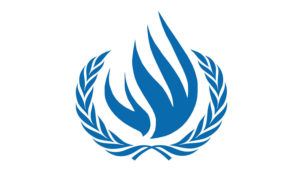
Body Meeting
49th Regular Session of the Human Rights Council | HRC49
28 Feb – 01 Apr 2022
Palais des Nations | Room XIX & Online
HRC


Body Meeting
Resumed Sessions of SBSTTA-24, SBI-3 and WG2020-3
14 – 29 Mar 2022
International Conference Center Geneva
CBD
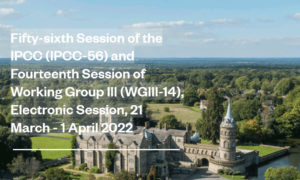
Body Meeting
56th Session of the IPCC (IPCC-56) and 14th Session of Working Group III (WGIII-14)
21 Mar – 04 Apr 2022
Online
IPCC


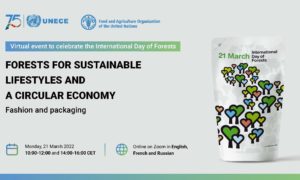
Virtual
Forests for Sustainable Lifestyles and a Circular Economy : Fashion and packaging
21 Mar 2022 10:00 – 16:00
Online
UNECE

Body Meeting
17th Session of the Group of Experts on Coal Mine Methane
21 – 22 Mar 2022
Palais des Nations and Online
UNECE
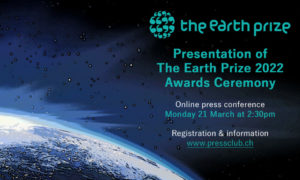
Conference
Presentation of The Earth Prize 2022 Awards Ceremony
21 Mar 2022 14:30
Online
Geneva Press Club

Virtual
Lessons Learned For The Biological And Toxin Weapons Convention Review Conference
21 Mar 2022 13:00 – 15:30
Online
UNIDIR

Conference
L’Histoire a-t-elle un avenir?
21 Mar 2022 18:30
Uni Dufour, Rue du Général-Dufour 24
UNIGE


Local
Rencontre MIA « Quels partenariats mon association peut-elle développer avec la Ville de Genève ? »
22 Mar 2022 12:15 – 13:45
Maison Internationale des Associations
Maison Internationale des Associations, City of Geneva

Conference
CBD Side Event | Integrating Human Rights in the Future of Biodiversity Action
22 Mar 2022 13:15 – 14:45
CICG Room D & Online | Webex
OHCHR


Workshop
Eco-Challenges: A simple, effective and immediate way to act on the climate emergency
23 Mar 2022 14:00 – 16:00
SDG Solution Space, Avenue de Sécheron
Open Geneva

Virtual
Early Warning and Early Action | World Meteorological Day Celebration
23 Mar 2022 14:00 – 15:30
Onlilne & WMO Headquarters
WMO

Conference
Face au Désert : Cultiver la Resiliénce
23 Mar 2022 18:00 – 19:45
Maison de la paix | Pétale 2 | Auditoire A1A & Online
IHEID

Afterwork
La Forêt européenne : entre Passé et Futur 1850-2050
23 Mar 2022 18:30
INGE rue Jean-F. Bartholoni 6, 1er étage - Les Salons
INGE

Conference
9th Session of the Group of Experts on Gas
24 – 25 Mar 2022
Palais des Nations & Online
UNECE

Conference
High-Level Debriefing on the 5th Session of the United Nations Environment Assembly
24 Mar 2022 10:00 – 11:30
CCV & Online | Webex
GEN

Virtual
The future of Migration Policy: Preparing Professionals for a Growing Demand in our Global Context
24 Mar 2022 17:00
Online | Zoom
Webster University Geneva
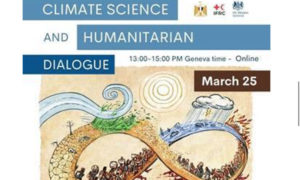
Virtual
Climate Science and Humanitarian Dialogue
25 Mar 2022 13:00 – 15:00
Online
IFRC, Egypt, United Kingdom

Jobs
See all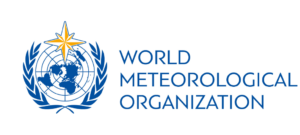
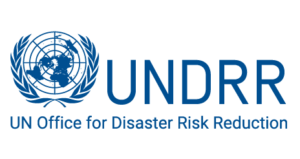
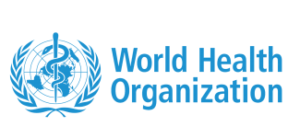



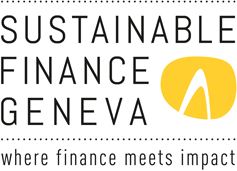


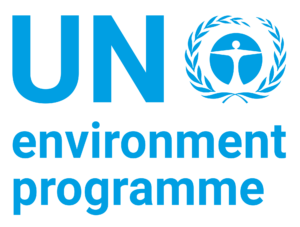
Professional
Chief of Service, Programme Management (D1)
26 Mar 2022
UNEP Resources and Markets Branch
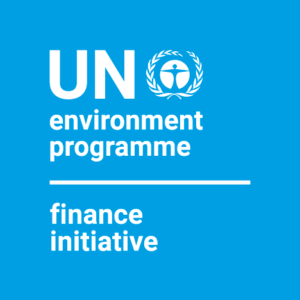
Consultant
Principles Responsible Banking (PRB) Implementation Support Associate (Europe)
27 Mar 2022
UNEP FI


